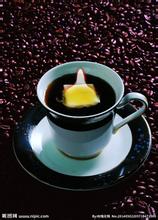The Flavor and Taste of Burundian Coffee beans the characteristics of the manor area introduce the origin of Burundian coffee
(1) Forces pour la D é fense de la D é mocratie au Burundi (FDD), the ruling party, with the Hutu as the main body. Once the largest rebel force, it reached a ceasefire agreement with the transitional government in November 2003, formally became a legitimate political party in September 2004, and won elections at all levels in 2005 to become the ruling party. In February 2007, FDD held a special party Congress, which decided that the highest authority within the party was the sage committee, and elected President Nkurunziza as chairman of the committee, former general secretary Manasse Nzobonimpa (Manass é NZOBONIMPA) as secretary of the committee; the meeting also elected Jeremie Endakumana (J é r é mie NGENDAKUMANA) as the new chairman of the party. In early 2011, Manasse, secretary of the Committee of Sages, was terminated for publicly criticizing corruption within the Party, and the second Vice President of Burundi, Rufikiri, succeeded Ma as Secretary of the Committee of Sages. In March 2012, FDD held its second National Congress and elected Pascal Niabunda (Pascal NYABENDA) as President, Viktor Brykukier (Victor BURIKUKIYE) as first Vice-President and Joseph Nkataruttimana as second Vice-Chairman.
(2) Front pour la d é mocratie au Burundi-FRODEBU: FLN, established in 1986, is the largest political party of the Hutu nationality. The goal of the Party is to establish a truly sovereign state that respects, defends and promotes people's fundamental rights and freedoms. After the establishment of the transitional government on 1 November 2001, former PFDJ General Secretary Ndayizeye served as Vice President and PFDJ Chairman Minani served as Speaker of the National Assembly. After the defeat of the legislative election in 2005, Minani was removed from his post as chairman, with former general secretary L é once NGENDAKUMANA elected chairman and Ephrahi Bikirmana (Euphrasie BIGIRMANA) elected general secretary. In March 2006, he announced his withdrawal from the government and became an opposition party.
(3) Le Parti de progressive unification 39; unit é pour le Progr è s National-UPRONA: the Ukrainian Party, founded in January 1959, is the largest political party of the Tutsi nationality. Bu was in power for a long time after independence. After losing the multi-party election in June 1993, he lost his status as the ruling party. After Buyoya returned to power in 1996, the party split, with radicals opposing Buyoya's policy of national reconciliation and refusing peace talks. The National Congress was held in January 2006, in which Aloy Rubuka (Aloys RUBUKA) and Antonova Sisyo (Antoine CISHAHAYO) were elected chairman and vice chairman of the party, respectively.
Burundi has the most diverse and successful coffee industry in the world, and has its own characteristics. Coffee in this country was introduced by Belgian colonists in 1930 and is now grown only on small farms. Unfortunately, many of these farms are on the border with war-torn Rwanda, putting pressure on coffee production. Almost all coffee produced in Burundi is Arabian coffee beans, while coffee trees in Ngozi are planted at an altitude of more than 1200 meters. Burundian coffee has a rich aroma and excellent acidity, and most of its products are exported to the United States, Germany, Finland and Japan.
Burundian coffee bears a striking resemblance to neighboring Rwanda, where coffee from the two countries is often confused. Burundian coffee is mainly grown in bourbon, with traditional wet processing of coffee cherries. Its boutique coffee is characterized by elegant sweetness and bright citrus aromas. This batch belongs to bourbon species micro batch.
[Bulongdi Champion processing Plant] is located at the Maerdadi Peak of the Panjia treatment Plant in Cabuye District, Cajun Province. It is very high above sea level, and even has mountains over 2000 meters above sea level. The soil is fertile, the soil is humid, and the coffee grows very well. It is generally recognized as the best coffee processing plant in Burundi.

Important Notice :
前街咖啡 FrontStreet Coffee has moved to new addredd:
FrontStreet Coffee Address: 315,Donghua East Road,GuangZhou
Tel:020 38364473
- Prev

Simple and mild flavor of Ugandan coffee the characteristics of the manor producing area introduce the fine coffee beans of Uganda
Ugandan coffee beans have a unique flavor of delicate taste, which is very suitable for making Italian and other flavors of coffee. More importantly, Ugandan coffee beans are strictly screened according to the standards of the international market to ensure their high quality and pollution-free characteristics. Africa is the hometown of two major varieties of coffee, Arabica and Robusta, while the eastern Africa enjoys a plateau water hometown and a pearl of East Africa.
- Next

Introduction to the characteristics of the flavor and taste of Puerto Rican coffee beans in the manor area
Yaocote's choice of coffee, which is grown only on three farms in the southwest of the island, is fragrant and has a long aftertaste. This kind of coffee is very expensive and its flavor is comparable to that of any other coffee variety in the world. In the Yauco area, the coffee is owned and operated by local planters. The mountain climate here is mild, and the plants have a long mature period (from October to February of the following year).
Related
- Detailed explanation of Jadeite planting Land in Panamanian Jadeite Manor introduction to the grading system of Jadeite competitive bidding, Red bid, Green bid and Rose Summer
- Story of Coffee planting in Brenka region of Costa Rica Stonehenge Manor anaerobic heavy honey treatment of flavor mouth
- What's on the barrel of Blue Mountain Coffee beans?
- Can American coffee also pull flowers? How to use hot American style to pull out a good-looking pattern?
- Can you make a cold extract with coffee beans? What is the right proportion for cold-extracted coffee formula?
- Indonesian PWN Gold Mandrine Coffee Origin Features Flavor How to Chong? Mandolin coffee is American.
- A brief introduction to the flavor characteristics of Brazilian yellow bourbon coffee beans
- What is the effect of different water quality on the flavor of cold-extracted coffee? What kind of water is best for brewing coffee?
- Why do you think of Rose Summer whenever you mention Panamanian coffee?
- Introduction to the characteristics of authentic blue mountain coffee bean producing areas? What is the CIB Coffee Authority in Jamaica?

